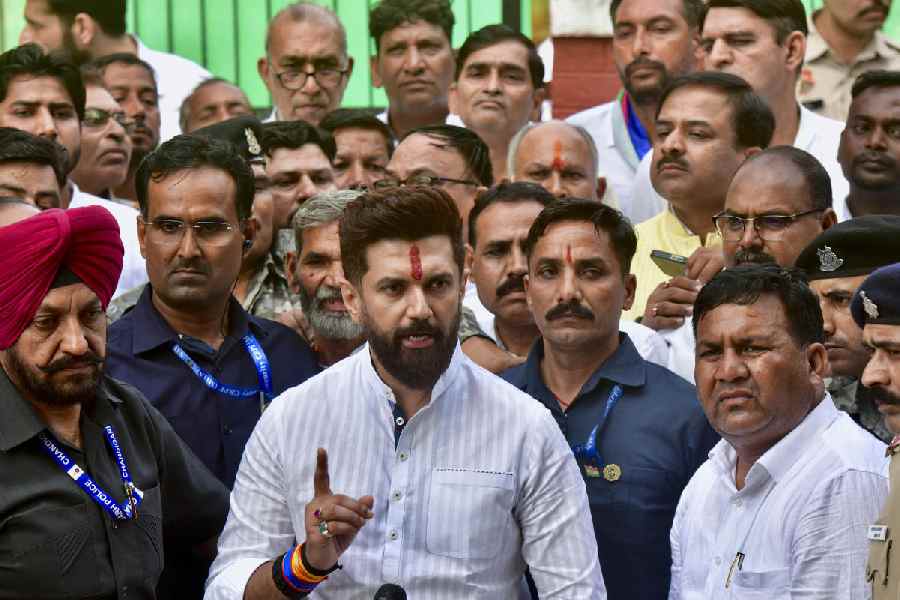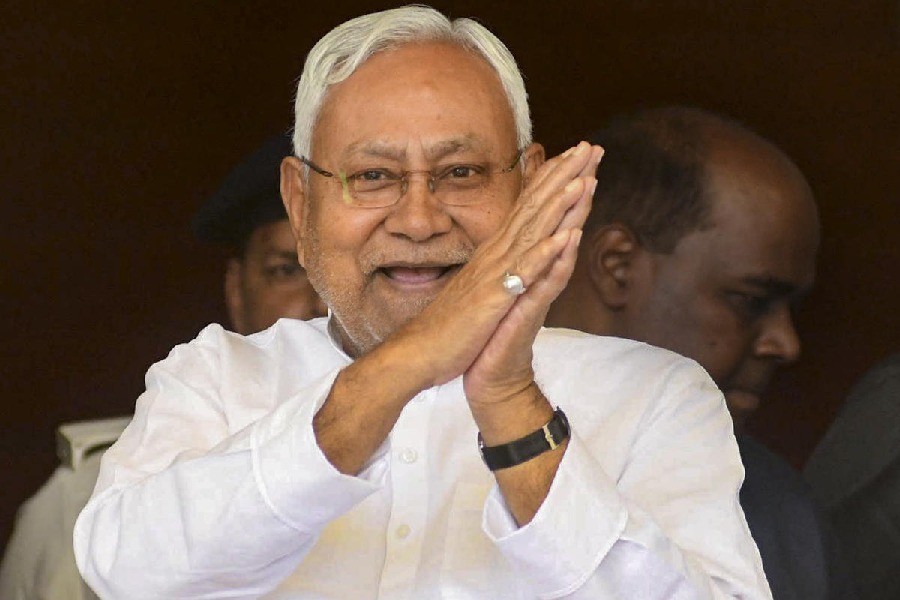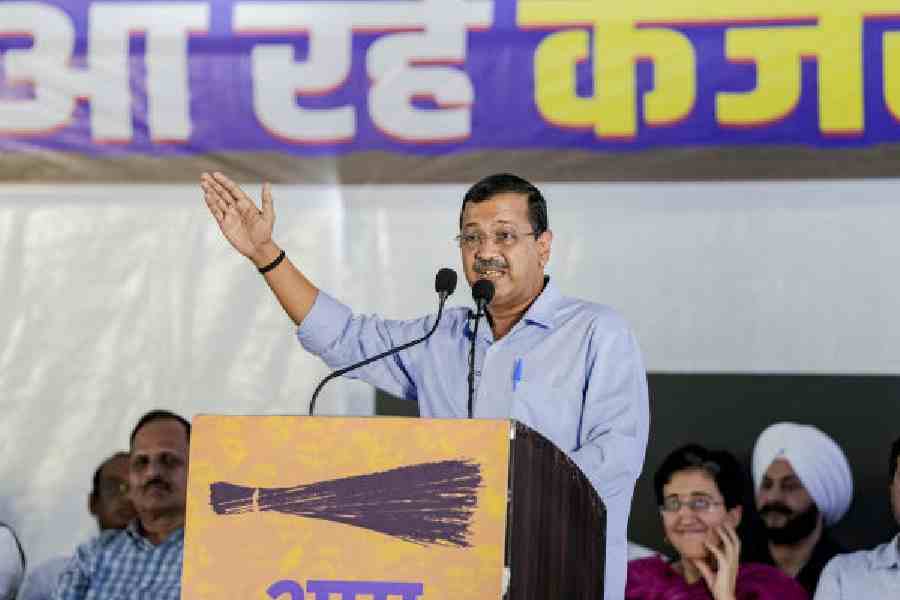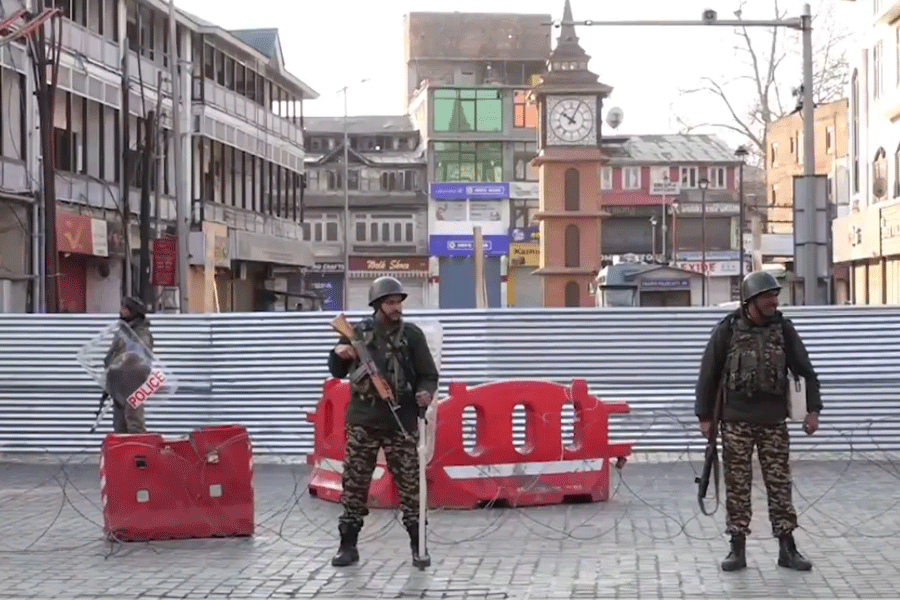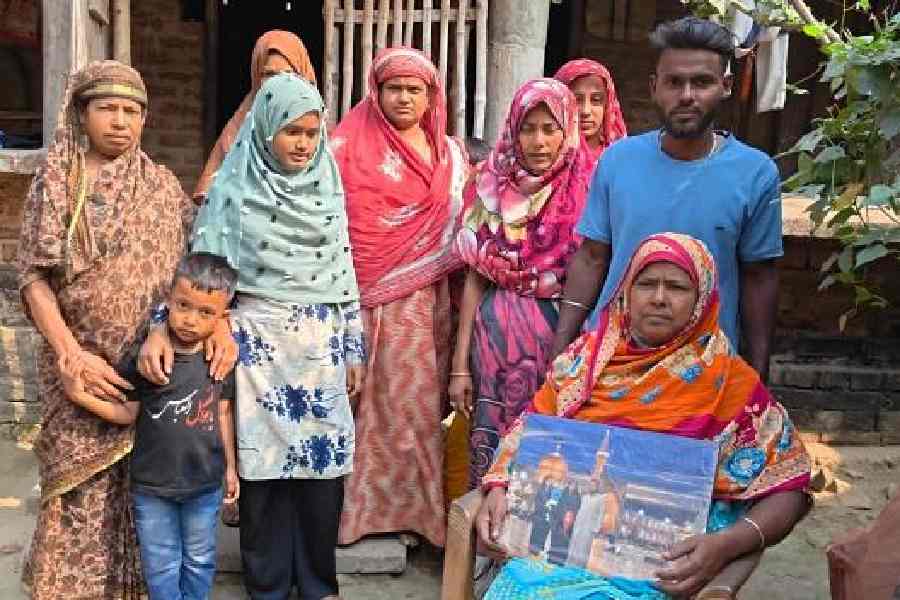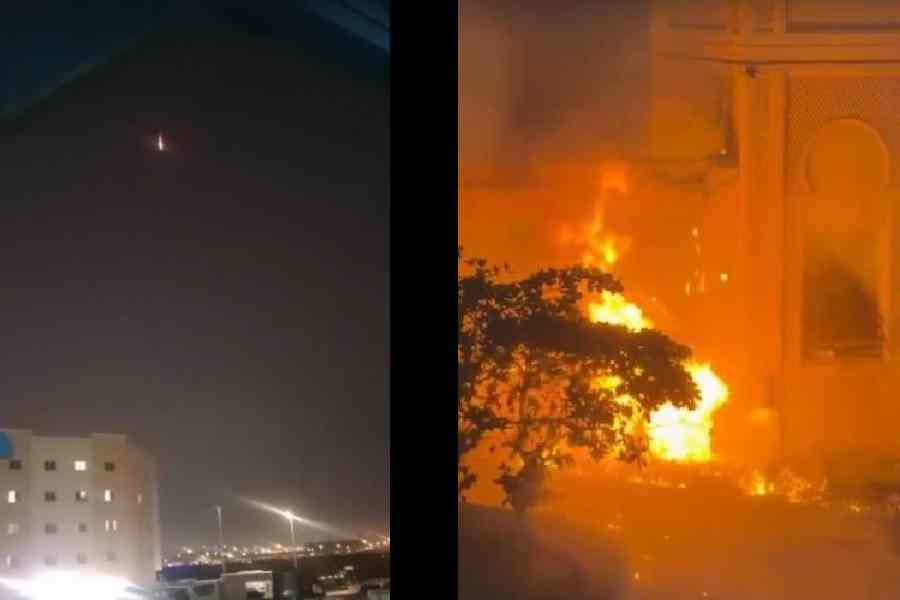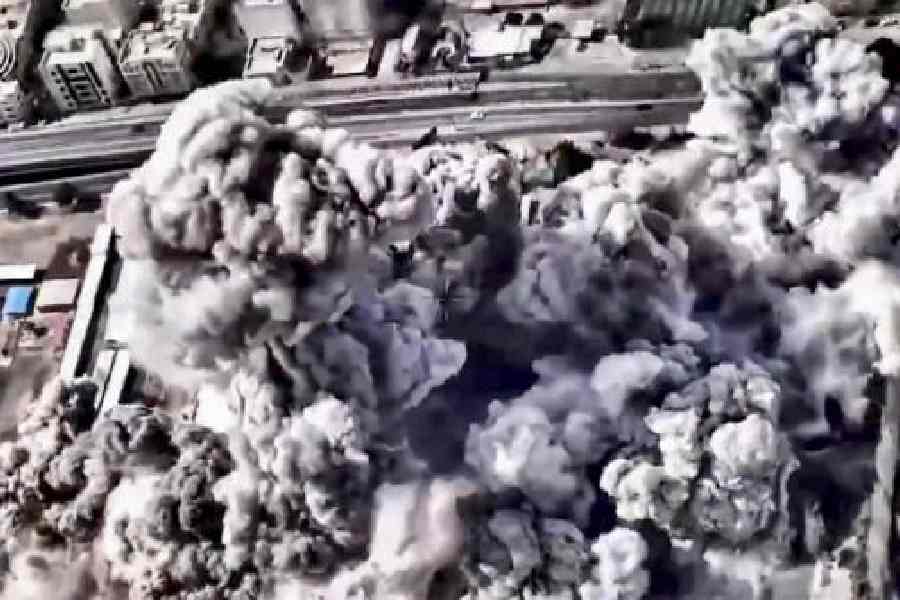The allotment of 29 seats to Chirag Paswan, who had once famously proclaimed himself to be Prime Minister Narendra Modi’s “Hanuman”, has thrown the NDA’s seat-sharing arrangements in poll-bound Bihar into disarray.
Hindustani Awam Morcha (HAM) chief and Union minister Jitan Ram Manjhi came out in support of JDU leader and chief minister Nitish Kumar, announcing that his party would field candidates in two constituencies allotted to Chirag’s LJP (Ram Vilas).
Several leaders of the JDU, which has had to settle for an equal number of seats as the BJP (101) for the first time, in private expressed grave discontent at what they termed a “raw deal”, pointing out that Chirag’s share was “hugely outsized” and that several traditional JDU seats had been handed over to his party.
“His (Nitish’s) anger is justified. Why should someone else contest from seats earmarked for the JDU?” Manjhi told reporters, appearing to refer to the LJP.
In a tit-for-tat move, Majhi said he had allotted HAM symbols to party candidates in Bodh Gaya and Maqdumpur — both constituencies allotted to the LJP. “In solidarity with Nitishji, we are contesting these two seats,” he declared.
The BJP on Tuesday released its first list of 71 candidates.
Chirag’s inclusion in the NDA has long been a sore point for Nitish as his decision to go solo in the last Assembly polls had inflicted significant electoral damage on the JDU.
In 2020, Chirag had fielded most of his candidates from seats that the JDU was contesting, splitting the NDA votes. The JDU could win just 40 seats while junior ally BJP surged past 70. That result helped the BJP to demand the same number of seats as the JDU this time.
The Opposition Mahagathbandhan appeared no less chaotic, struggling to arrive at an amicable seat-sharing formula amid intense bargaining by the Congress, Left parties and the Vikassheel Insaan Party (VIP).
Tensions within the bloc took a dramatic turn on Monday evening when RJD chief Lalu Prasad, apparently frustrated by the inflated demands of allies, distributed party symbols to some candidates on his own. Within hours, his son and RJD leader Tejashwi Yadav intervened, rescinding the move and reclaiming the symbols, fearing it would send a wrong signal to alliance partners. The father and son had just returned from Delhi after meeting Congress leaders over the seat-sharing impasse.
The Congress is seeking over 60 seats, a demand Lalu is reportedly resisting, arguing the party lacks the grassroots strength to justify such a share. The Left, particularly the CPIML-Liberation, and Mukesh Sahani’s VIP, too, are pushing for larger shares, adding to the pressure on the RJD, which aims to contest more than 130 of the 243 Assembly seats to retain its dominance within the alliance.
However, it was the turmoil within the JDU — the NDA’s principal constituent — that grabbed the maximum attention.
Insiders said Nitish was deeply upset after the BJP leadership allowed the LJP to corner 29 seats, including several that the JDU had historically contested and won.
“Nitishji spoke to Union home minister Amit Shah and lodged a strong protest,” a JDU leader in Patna said. “Shah promptly directed Union minister and Bihar BJP leader Nityanand Rai to negotiate with the LJP leadership. We are hopeful of an early resolution,” the leader said.
Signs of unrest were visible on the ground. Bhagalpur MP Ajay Mandal wrote to Nitish, offering to resign from the party and claiming he had not been consulted over the ticket distribution. Another JDU MLA, Gopal Mandal, sat on a dharna outside the chief minister’s residence, alleging his name has been dropped from the candidate list by the party’s “power brokers”.
Several senior JDU leaders have accused working president Sanjay Kumar Jha of caving in under BJP pressure and accepting a poor deal. Amid mounting criticism, Jha rejected claims that Nitish had been kept out of the loop. “Nitishji is directly in touch with everyone. Senior BJP leaders in Delhi are also in regular contact with him. Every decision is being finalised after discussions with him,” Jha told reporters.
Acknowledging “some differences” among NDA partners, Jha said those would be ironed out soon. “We have already agreed on the number of seats. The specific constituencies and candidates will likely be finalised by this evening,” he said.
While the JDU delayed its list of candidates, the BJP went ahead and announced names for 71 of its 101 allotted seats. The BJP leaders claimed that keeping in mind the dominance of deprived sections in the state, 17 OBCs, 11 EBCs (extremely backward class), six Dalits and nine women had found place in the first list. The BJP is trying to expand its base beyond its traditional upper-caste backers by denting the vote base of the Mandal parties in the state.
A joint NDA media conference scheduled for Monday evening to release the list and showcase unity was abruptly cancelled following disagreements over specific constituencies. The last date for filing nominations for the first phase of polling, scheduled for October 6, is October 17.
Shah is slated to visit Bihar from October 16 to 18 to hold talks with NDA allies and fine-tune the coalition’s campaign strategy. He is also expected to attend the nomination of key BJP leaders during his stay.
Speaker dropped
The BJP’s first list dropped Assembly Speaker Nand Kishore Yadav from the Patna Sahib constituency. The party fielded former Union minister Ramkripal Yadav from Danapur instead. Nand Kishore is a contemporary of the late Sushil Kumar Modi, the BJP’s face in Bihar for decades. The BJP’s list of 71 did not include the constituencies over which differences with allies have surfaced.
The list retained most sitting MLAs, including deputy chief minister Samrat Choudhary and health minister Mangal Pandey, both of whom have been accused of corruption by Jan Suraaj leader Prashant Kishor. Around 10 sitting MLAs were replaced with new faces.

